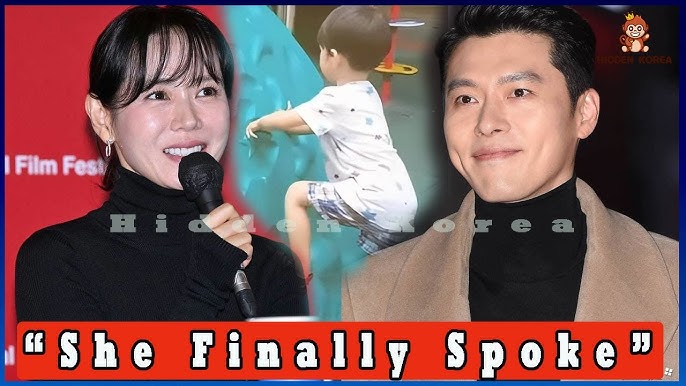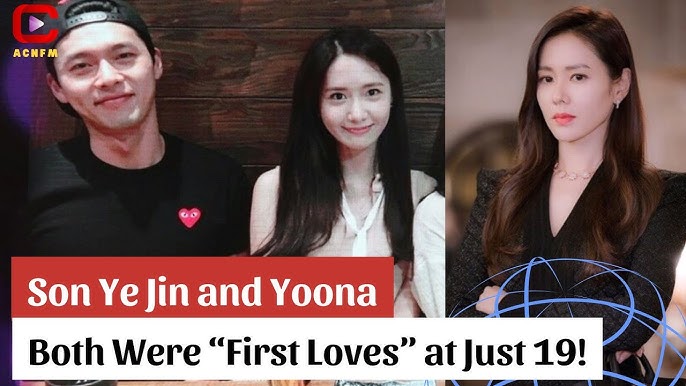Son Ye Jin Reflects on Motherhood, Marriage, and the Quiet Power of Love
Meta Description (SEO):
In a rare and intimate interview at a Seoul café, Korean actress Son Ye Jin opens up about life after marriage to Hyun Bin, the joys and challenges of motherhood, and why peace—not fame—is her new definition of happiness.

The late afternoon light poured gently through the tall glass windows of Seoul Forest Café. There sat Son Ye Jin, calm and radiant, in a soft cream sweater, her hair tied loosely, her eyes thoughtful as she looked toward the fading autumn sky.
There was no press crew, no stage lights, no crowd of fans—just the soft hum of jazz and the faint aroma of roasted coffee. It wasn’t a performance; it was a glimpse into her real life.
“After the wedding,” she began quietly, “everything slowed down. The applause faded, the world went silent—and for the first time, I could hear my own heartbeat.”
The actress, known for her timeless roles in Crash Landing on You and Something in the Rain, spoke not as a star, but as a woman rediscovering herself.
“When the world quieted down,” she said, “I realized how much of my life had been noise—scripts, interviews, flashing cameras. Suddenly, it was just me, him, and our little one.”
The Most Beautiful Role: Motherhood
When she spoke about her son, affection filled her voice. “Motherhood is the most humbling role I’ve ever played,” she said with a tender laugh. “I used to think I understood emotion because I was an actress. But then you hold your baby, and every scene you’ve ever done feels like an echo of something you didn’t truly understand.”
She described nights of sleepless feeding, tiny fingers curling around hers, and the sound of baby laughter echoing through their home. “There’s a purity in it,” she whispered. “No script, no retakes—just real love.”

A Quiet, Steady Love
When asked about her husband Hyun Bin, her smile softened. “He’s calm, more than people think,” she said. “He doesn’t say much, but when he does, it stays with me. We don’t need to speak all the time. Sometimes love is quiet—it’s enough just to be beside each other.”
Her words carried a kind of simplicity that only comes from lived experience. “We don’t say ‘I love you’ every day,” she continued. “But we show it—in the small things. When he cooks breakfast, when he takes the baby out so I can rest. That’s love to me.”
Beyond the Spotlight
There were moments, she admitted, when life away from fame felt disorienting. “There were times I felt invisible when I wasn’t working,” she confessed. “But then I realized, maybe being invisible isn’t a loss. Maybe it’s peace. Maybe it’s the real me—the one that doesn’t have to perform.”
Her gaze drifted toward the golden sunlight outside. “I used to chase everything—awards, applause, success. Now, I just want to sit in a moment and feel it fully.”
The Strength to Begin Again
When the topic turned to the future, her expression grew tender. “People keep asking if we’re thinking about another baby,” she said with a shy smile. “We’ve talked about it… not seriously yet. But maybe next year. We’ll see how life feels.”
Her words carried hope and calm acceptance. “Parenthood teaches you that everything has its time,” she continued. “When my son was born, I learned to slow down—to really see him, to not miss a second. Love doesn’t just double when you have another child—it deepens. It stretches your heart.”
As the café lights dimmed, Son Ye Jin’s tone softened even more. “Before, love was excitement. Now, it’s quieter—protective. It’s knowing that my happiness is tied to someone else’s laughter. That’s motherhood. That’s marriage.”

Choosing Love, Every Day
She smiled when asked what she missed about her old life. “Maybe sleep,” she laughed. “And the freedom of not thinking too much. But I wouldn’t trade this life for anything. When I see my husband carrying our son on his shoulders, that’s happiness I never even knew to wish for.”
Before leaving the café, Son Ye Jin paused by the door. “People look at us and see a beautiful story,” she said softly. “But what I love most are the ordinary days—messy hair, tired eyes, laughter. That’s real. That’s us.”
She stepped out into the cool Seoul evening, the golden streetlights reflecting gently in her eyes. For a brief moment, she looked up at the sky and whispered, “Maybe next year.”
And in her voice, there was hope—quiet, radiant, infinite.




